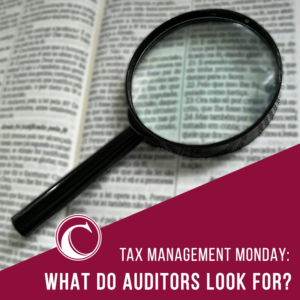 Tax audits still remain relatively rare, but should you face one, be prepared for questions. Tax authorities tend to deny everything and then make you prove that your deductions are valid. Here are some suggestions.
Tax audits still remain relatively rare, but should you face one, be prepared for questions. Tax authorities tend to deny everything and then make you prove that your deductions are valid. Here are some suggestions.
To prove your deduction most auditors are looking for two required documents.
Receipts. The receipt should clearly show the company or entity, the date, the value of the activity, and a clear description of the activity. In the case of donations, the receipt should also have a statement that confirms you received no benefit in return for your donation. It should also state that you are not retaining part ownership of the donation.
Proof of payment. You will need a canceled check, a bank statement, or a credit card receipt and related statement.
Other proof. In addition to the above, there are certain deductions that require additional documentation. Here are the most common:
Contemporaneous. Any proof of payment and receipts should generally match the date of the activity. The IRS and state agencies are quick to dismiss receipts that are obtained after the fact. A good rule of thumb is to ensure receipts and proof of payment are received at the time of the activity. If not, at least make sure you have receipts and payment proof within the tax year the deduction is taken.
Mileage logs. You will need to show properly maintained mileage logs for business miles, charitable miles, and any medical mile deductions.
Business records. You will need financial statements for any business-related activity with supporting documentation.
Residency. If you live in multiple states or multiple countries, you may have to prove where you lived during the year. Keep records that show your physical presence to support your tax filings.
Proof of non-reimbursement. If you claim any unreimbursed business expenses, many states are asking you to prove that you were not able to get these expenses reimbursed from your employer. The easiest ways to do this are to show a denied expense report or to get your employer to write a letter that confirms your expenses were not reimbursed. Those most impacted by this are musicians, barbers/hairstylists, construction workers, and anyone who uses their own tools to do their job for their employer.
While you can never be completely sure you won’t face an audit in your lifetime, you now know which documents an auditor will want.
